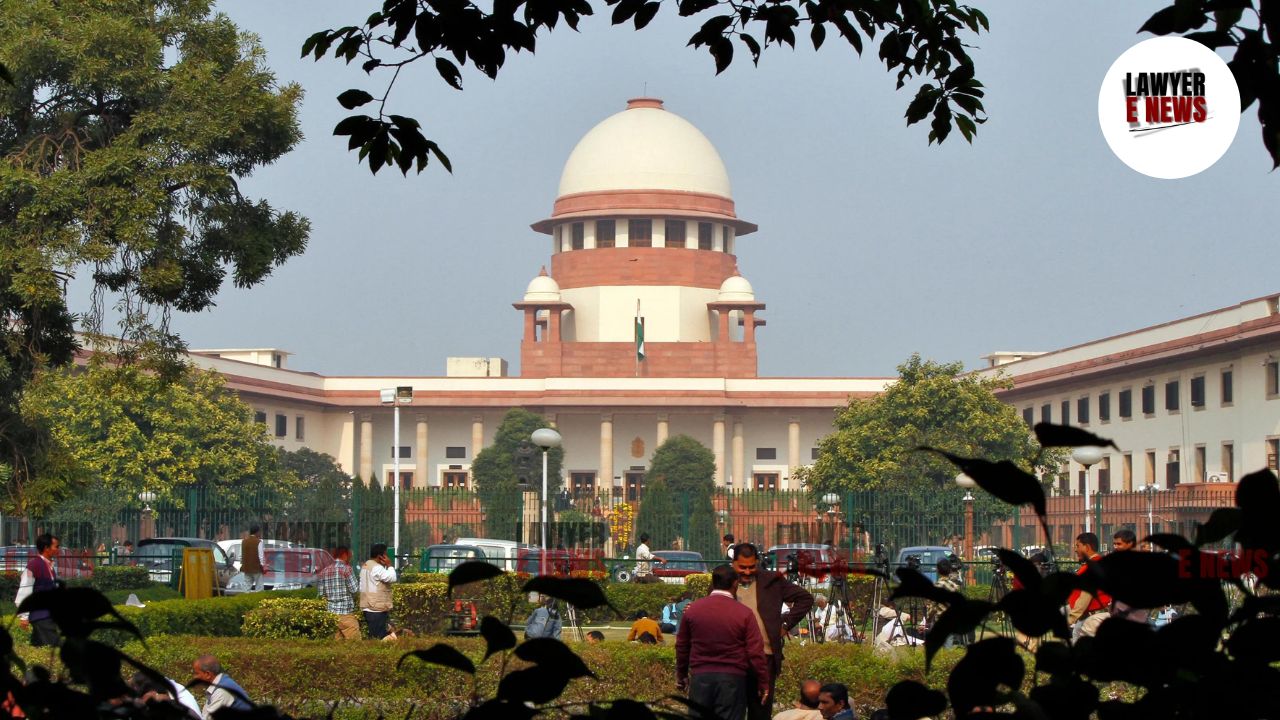-
by Admin
16 February 2026 1:47 PM



“Demand Not Proved—Recovery Alone Is Not Enough”, In a significant ruling on the evidentiary thresholds in corruption prosecutions, the Supreme Court of India dismissed an appeal filed by the State of Lokayuktha Police, Davanagere, challenging the acquittal of a public servant who had earlier been convicted under the Prevention of Corruption Act, 1988 for allegedly demanding and accepting a bribe of ₹1,500. The Court observed that “just because money changed hands, in cases like the present, it cannot be ipso facto presumed that the same was pursuant to a demand”, adding that the chain of “demand, acceptance, and recovery” must be complete for a conviction to sustain.
The bench comprising Justice Ahsanuddin Amanullah and Justice Pankaj Mithal upheld the Karnataka High Court’s decision acquitting C.B. Nagaraj, a retired Extension Officer in Taluka Panchayat, Davanagere, accused of soliciting a bribe in return for forwarding a spot inspection report for a caste validity certificate.
C.B. Nagaraj was accused of demanding a bribe of ₹1,500 from the complainant, E.R. Krishnamurthy, for forwarding a spot inspection report necessary for securing a Category-II A caste validity certificate. On February 7, 2007, the Lokayuktha Police organized a trap. According to the prosecution, Nagaraj accepted the phenolphthalein-smeared currency notes, which were later recovered from his possession, and chemical tests confirmed his contact with the notes.
The Trial Court convicted Nagaraj, sentencing him to six months’ simple imprisonment under Section 7 and two years under Section 13(1)(d) read with 13(2) of the Prevention of Corruption Act, 1988. However, the High Court of Karnataka, in 2013, set aside the conviction, casting doubt on the credibility of the complainant and finding inconsistencies in the prosecution case.
Aggrieved, the Lokayuktha Police filed an appeal before the Supreme Court.
The Supreme Court framed the central issue succinctly: Was the “demand” of illegal gratification conclusively proved? Because, as the Court emphasized, “for conviction under the Act, an entire chain—beginning from demand, acceptance, and recovery—has to be completed.”
Citing its own precedent, the Court reiterated:
“In the case at hand, when the initial demand itself is suspicious, even if the two other components—of payment and recovery—can be held to have been proved, the chain would not be complete.”
The bench found the complainant’s testimony unreliable, particularly because he initially denied that any spot inspection had been conducted, only to admit later—when confronted with documentary evidence—that he and his father had signed the report.
“Such conduct is sufficient to render his testimony unreliable,” the Court said.
It further noted that when the complainant returned to Nagaraj’s office in the evening with the money, the respondent had already forwarded the file. In such a situation, the Court questioned the rationale for any payment:
“There was no occasion for the complainant to go ahead with paying the amount... after the work had already been done.”
Regarding the statutory presumption under Section 20 of the Prevention of Corruption Act, the Court clarified:
“There is no cavil that while a reverse onus under specific statute can be placed on an accused, even then, there cannot be a presumption which casts an uncalled for onus... where demand has not been proved, Section 20 will also have no application.”
The Court dissected the prosecution's case with critical precision. It observed that except for the complainant’s own claim, no other witness clearly established a demand. A key witness, PW2, gave conflicting testimony—initially saying he didn’t hear the conversation, later claiming he did, and finally admitting he couldn’t confirm what was said.
The Court also took note that the defence version—that the money was repayment of a loan given earlier by Nagaraj to the complainant—had been consistently stated from the time of arrest and was not an afterthought.
While acknowledging that the High Court should ideally have offered more detailed reasoning while acquitting the accused, the Supreme Court held that “since the factum of demand itself has not been proved beyond reasonable doubt, the acquittal... cannot be termed perverse or unwarranted.”
In conclusion, the bench firmly upheld the High Court's acquittal:
“The appeal stands dismissed. No ground made out requiring interference by this Court.”
This judgment serves as a vital reaffirmation of the legal principle that recovery of tainted money is not enough for conviction in corruption cases—the foundational element of “demand” must be proved beyond reasonable doubt.
By declaring that “money changing hands does not automatically mean bribery”, the Supreme Court has sent a message to investigative agencies and trial courts: strict compliance with evidentiary standards is essential when a person’s liberty and reputation are at stake under the Prevention of Corruption Act.
Date of Decision: May 19, 2025
